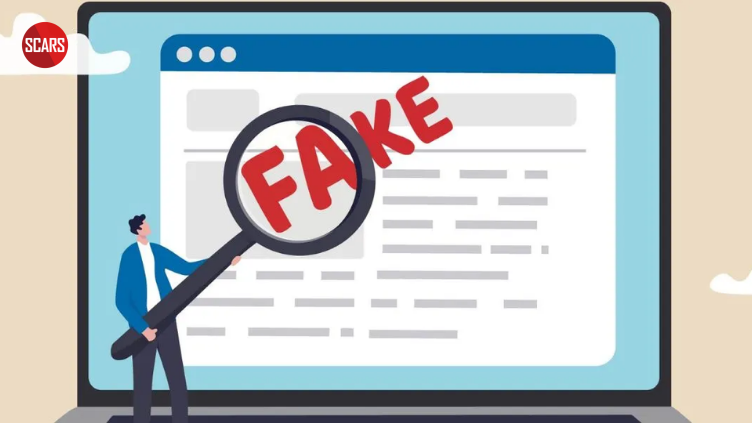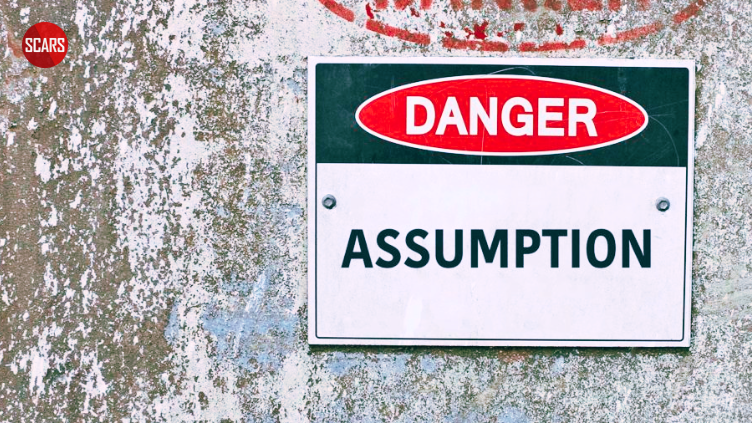Scam Victim Scammer Obsession – Part 2
The Obsessive Focus on the Past Traps Scam Victims!
Primary Category: Scam Victim Recovery Psychology
Authors:
• Vianey Gonzalez B.Sc(Psych) – Licensed Psychologist, Specialty in Crime Victim Trauma Therapy, Neuropsychologist, Certified Deception Professional, Psychology Advisory Panel & Director of the Society of Citizens Against Relationship Scams Inc.
• Tim McGuinness, Ph.D., DFin, MCPO, MAnth – Anthropologist, Scientist, Polymath, Director of the Society of Citizens Against Relationship Scams Inc.
About This Article
Scam victims often struggle to move forward in their recovery if they remain fixated on the scammers and the crime, a common yet harmful coping mechanism. This constant retrospection can trap them in a cycle of reliving the trauma, hindering their healing and reinforcing feelings of anger, shame, and guilt.
The psychological impact includes heightened anxiety, depression, and a sense of hopelessness, as victims may feel defined by the scam. Moving forward requires a shift in focus from the past to the present and future, seeking professional support, building a supportive network, and engaging in activities that promote well-being.
By releasing their grip on the past and prioritizing personal growth, victims can reclaim their lives and move beyond the identity of being a scam victim.
Note: This article is intended for informational purposes and does not replace professional medical advice. If you are experiencing distress, please consult a qualified mental health professional.

A Note About Labeling!
We often use the term ‘scam victim’ in our articles, but this is a convenience to help those searching for information in search engines like Google. It is just a convenience and has no deeper meaning. If you have come through such an experience, YOU are a Survivor! It was not your fault. You are not alone! Axios!
Moving Forward without Obsession: The Challenge of Letting Go of the Scammers and the Scam for Scam Victims
Almost all Scam victims struggle to move forward with their recovery if they are constantly looking back at the scammers and the crime.
This fixation on the past is a significant barrier to healing, as it keeps victims trapped in a cycle of reliving the trauma and pain associated with the scam. While it’s natural to seek justice and closure, dwelling on the incident can hinder progress and prevent victims from reclaiming their lives.
The Trap of Constant Retrospection
After being scammed, many victims feel an understandable need to understand how the crime happened, identify the perpetrators, and seek some form of restorative justice. This can lead to a state of constant retrospection, where victims replay the events in their minds, scrutinize their actions, and obsess over the details of the scam. This focus on the past creates a narrative loop of negative thoughts and emotions, such as anger, shame, and guilt.
Reliving the trauma repeatedly also reinforces feelings of powerlessness and victimization. As victims concentrate on what they lost and the ways they were deceived, they may struggle to see a path forward, feeling stuck in the moment of betrayal. This can impede the natural process of healing, where moving through and beyond the pain is crucial for recovery.
The Psychological Impact of Dwelling on the Past
Constantly looking in the rear-view mirror can magnify symptoms of anxiety, depression, and post-traumatic stress. The brain’s stress response system can remain on high alert, causing hypervigilance and a persistent sense of threat. This state of heightened anxiety can make it difficult for victims to engage in everyday activities, build trust in new relationships, or feel safe and secure.
Additionally, focusing on the past can prevent victims from engaging with the present and planning for the future. It can limit their ability to set new goals, pursue joy and interests, or rebuild their lives after the scam. This stagnation can lead to significant feelings of hopelessness and despair, as victims may feel that they are defined by the scam and unable to move beyond it.
This is all part of why focusing on scammers and fake profiles is so bad for scam victims trying to recover!
The Path to Moving Forward
To move forward with recovery, it is essential for scam victims to shift their focus from the past to the present and future. This does not mean ignoring the crime or pretending it didn’t happen; rather, it involves acknowledging the experience, processing the emotions associated with it, and then choosing to prioritize personal healing and growth.
One essential required step is to seek professional support, such as a professional support provider and counseling or therapy, to work through the trauma and develop healthy coping strategies. A support provider and mental health professionals can help victims navigate their emotions, address any symptoms of trauma, and guide them toward a more positive and proactive mindset as a team.
Building a support network of friends, family, or support groups can also be invaluable. Sharing experiences with others who understand can provide comfort and validation, reducing feelings of isolation and self-blame. Even more important is learning the facts behind these crimes and what they do to their victims. Also, engaging in activities that promote well-being, such as exercise, creative pursuits, or mindfulness practices, help victims reconnect with themselves and their interests, rebuilding their sense of normalcy and hope.
Ultimately, recovery involves finding a balance between acknowledging the impact of the scam and choosing to invest in one’s future. By releasing their grip on the past and embracing the possibilities of the present and future, victims can reclaim their power, rebuild their lives, and move beyond the identity of being a scam victim. This journey is not always linear or easy, but it is possible with the right support and mindset.
Moving Forward
Letting go and moving forward begins with factual knowledge about these crimes, the criminals, and what they do to victims. SCARS recommends the following:
- Start learning properly at www.ScamVictimsSupport.org
- Sign up for FREE professional support services at support.AgainstScams.org
- Learn the facts to empower your recovery by enrolling in the FREE Scam Survivor’s School at www.SCARSeducation.org
- Find counseling or trauma therapy at counseling.AgainstScams.org
-/ 30 /-
What do you think about this?
Please share your thoughts in a comment below!
Statement About Victim Blaming
SCARS Institute articles examine different aspects of the scam victim experience, as well as those who may have been secondary victims. This work focuses on understanding victimization through the science of victimology, including common psychological and behavioral responses. The purpose is to help victims and survivors understand why these crimes occurred, reduce shame and self-blame, strengthen recovery programs and victim opportunities, and lower the risk of future victimization.
At times, these discussions may sound uncomfortable, overwhelming, or may be mistaken for blame. They are not. Scam victims are never blamed. Our goal is to explain the mechanisms of deception and the human responses that scammers exploit, and the processes that occur after the scam ends, so victims can better understand what happened to them and why it felt convincing at the time, and what the path looks like going forward.
Articles that address the psychology, neurology, physiology, and other characteristics of scams and the victim experience recognize that all people share cognitive and emotional traits that can be manipulated under the right conditions. These characteristics are not flaws. They are normal human functions that criminals deliberately exploit. Victims typically have little awareness of these mechanisms while a scam is unfolding and a very limited ability to control them. Awareness often comes only after the harm has occurred.
By explaining these processes, these articles help victims make sense of their experiences, understand common post-scam reactions, and identify ways to protect themselves moving forward. This knowledge supports recovery by replacing confusion and self-blame with clarity, context, and self-compassion.
Additional educational material on these topics is available at ScamPsychology.org – ScamsNOW.com and other SCARS Institute websites.
-/ 30 /-
What do you think about this?
Please share your thoughts in a comment below!
SCARS LINKS: AgainstScams.org RomanceScamsNOW.com ContraEstafas.org ScammerPhotos.com Anyscam.com ScamsNOW.com
reporting.AgainstScams.org support.AgainstScams.org membership.AgainstScams.org donate.AgainstScams.org shop.AgainstScams.org
youtube.AgainstScams.org linkedin.AgainstScams.org facebook.AgainstScams.org
Important Information for New Scam Victims
- Please visit www.ScamVictimsSupport.org – a SCARS Website for New Scam Victims & Sextortion Victims.
- SCARS Institute now offers its free, safe, and private Scam Survivor’s Support Community at www.SCARScommunity.org – this is not on a social media platform, it is our own safe & secure platform created by the SCARS Institute especially for scam victims & survivors.
- SCARS Institute now offers a free recovery learning program at www.SCARSeducation.org.
- Please visit www.ScamPsychology.org – to more fully understand the psychological concepts involved in scams and scam victim recovery.
If you are looking for local trauma counselors, please visit counseling.AgainstScams.org
If you need to speak with someone now, you can dial 988 or find phone numbers for crisis hotlines all around the world here: www.opencounseling.com/suicide-hotlines
Statement About Victim Blaming
Some of our articles discuss various aspects of victims. This is both about better understanding victims (the science of victimology) and their behaviors and psychology. This helps us to educate victims/survivors about why these crimes happened and not to blame themselves, better develop recovery programs, and help victims avoid scams in the future. At times, this may sound like blaming the victim, but it does not blame scam victims; we are simply explaining the hows and whys of the experience victims have.
These articles, about the Psychology of Scams or Victim Psychology – meaning that all humans have psychological or cognitive characteristics in common that can either be exploited or work against us – help us all to understand the unique challenges victims face before, during, and after scams, fraud, or cybercrimes. These sometimes talk about some of the vulnerabilities the scammers exploit. Victims rarely have control of them or are even aware of them, until something like a scam happens, and then they can learn how their mind works and how to overcome these mechanisms.
Articles like these help victims and others understand these processes and how to help prevent them from being exploited again or to help them recover more easily by understanding their post-scam behaviors. Learn more about the Psychology of Scams at www.ScamPsychology.org
SCARS INSTITUTE RESOURCES:
If You Have Been Victimized By A Scam Or Cybercrime
♦ If you are a victim of scams, go to www.ScamVictimsSupport.org for real knowledge and help
♦ SCARS Institute now offers its free, safe, and private Scam Survivor’s Support Community at www.SCARScommunity.org/register – this is not on a social media platform, it is our own safe & secure platform created by the SCARS Institute especially for scam victims & survivors.
♦ Enroll in SCARS Scam Survivor’s School now at www.SCARSeducation.org
♦ To report criminals, visit https://reporting.AgainstScams.org – we will NEVER give your data to money recovery companies like some do!
♦ Follow us and find our podcasts, webinars, and helpful videos on YouTube: https://www.youtube.com/@RomancescamsNowcom
♦ Learn about the Psychology of Scams at www.ScamPsychology.org
♦ Dig deeper into the reality of scams, fraud, and cybercrime at www.ScamsNOW.com and www.RomanceScamsNOW.com
♦ Scam Survivor’s Stories: www.ScamSurvivorStories.org
♦ For Scam Victim Advocates visit www.ScamVictimsAdvocates.org
♦ See more scammer photos on www.ScammerPhotos.com
You can also find the SCARS Institute’s knowledge and information on Facebook, Instagram, X, LinkedIn, and TruthSocial
Psychology Disclaimer:
All articles about psychology and the human brain on this website are for information & education only
The information provided in this and other SCARS articles are intended for educational and self-help purposes only and should not be construed as a substitute for professional therapy or counseling.
Note about Mindfulness: Mindfulness practices have the potential to create psychological distress for some individuals. Please consult a mental health professional or experienced meditation instructor for guidance should you encounter difficulties.
While any self-help techniques outlined herein may be beneficial for scam victims seeking to recover from their experience and move towards recovery, it is important to consult with a qualified mental health professional before initiating any course of action. Each individual’s experience and needs are unique, and what works for one person may not be suitable for another.
Additionally, any approach may not be appropriate for individuals with certain pre-existing mental health conditions or trauma histories. It is advisable to seek guidance from a licensed therapist or counselor who can provide personalized support, guidance, and treatment tailored to your specific needs.
If you are experiencing significant distress or emotional difficulties related to a scam or other traumatic event, please consult your doctor or mental health provider for appropriate care and support.
Also read our SCARS Institute Statement about Professional Care for Scam Victims – click here
If you are in crisis, feeling desperate, or in despair, please call 988 or your local crisis hotline – international numbers here.
More ScamsNOW.com Articles
A Question of Trust
At the SCARS Institute, we invite you to do your own research on the topics we speak about and publish. Our team investigates the subject being discussed, especially when it comes to understanding the scam victims-survivors’ experience. You can do Google searches, but in many cases, you will have to wade through scientific papers and studies. However, remember that biases and perspectives matter and influence the outcome. Regardless, we encourage you to explore these topics as thoroughly as you can for your own awareness.















![NavyLogo@4x-81[1] Scam Victim Scammer Obsession - Part 2 - 2024](https://scamsnow.com/wp-content/uploads/2025/04/NavyLogo@4x-811.png)










![scars-institute[1] Scam Victim Scammer Obsession - Part 2 - 2024](https://scamsnow.com/wp-content/uploads/2025/04/scars-institute1.png)

![niprc1.png1_-150×1501-1[1] Scam Victim Scammer Obsession - Part 2 - 2024](https://scamsnow.com/wp-content/uploads/2025/04/niprc1.png1_-150x1501-11.webp)